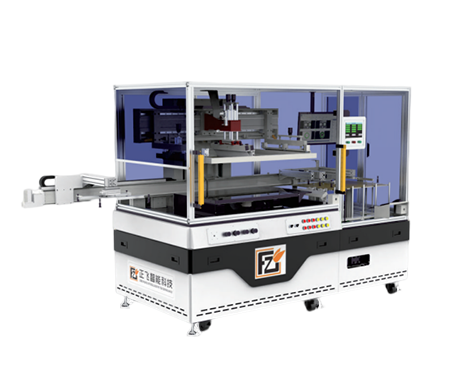
The fully automatic screen printing machine for sheet materials has been widely used in many industries due to its printing characteristics and can be adapted to various types of sheet materials. Plastic sheet materials are its common applicable objects, among which polypropylene (PP) sheet materials are widely used. PP sheet material has good chemical stability and weather resistance, with moderate surface hardness and good ink adhesion during screen printing. In the field of daily necessities packaging, it is often used for printing plastic packaging boxes, container labels, etc. Polyethylene (PE) sheets are soft in texture and have excellent flexibility, making them suitable for printing on products such as food packaging bags and cling films. Polyvinyl chloride (PVC) sheet materials have high hardness and good transparency, and can be used to make billboards, signboards, etc. After surface pretreatment, they can form a firm bond with screen printing ink.
Metal sheets are also suitable for fully automatic sheet screen printing machines. Aluminum plates are light in weight and corrosion-resistant, and are commonly used in the printing of electronic product casings and decorative panels. Before printing, the surface of the aluminum plate needs to be anodized to increase the surface roughness and improve the adhesion of the ink. Stainless steel sheets have high strength and good wear resistance, and are often used for printing on the panels of kitchenware and mechanical equipment. Due to the smooth surface of metals, special metallic inks are usually used and undergo baking and curing treatment to ensure that the inks adhere firmly.

Paper sheet materials are also one of the applicable scopes of screen printing machines. The thickness of the cardstock is moderate and its stiffness is good, making it suitable for printing packaging boxes, greeting cards, etc. Coated paper has a smooth surface and strong ink expressiveness, and is often used for printing exquisite brochures and posters. Corrugated paper sheets have excellent cushioning performance and are widely used in the packaging printing field. Through screen printing, product information, patterns, etc. can be printed. However, paper sheet materials have strong hygroscopicity. Before printing, the environmental humidity needs to be controlled to avoid paper deformation and affect the printing accuracy.
In addition, the fully automatic sheet screen printing machine can also be used to print composite material sheets. Aluminum-plastic composite sheet materials combine the advantages of both plastics and metals. They not only have excellent barrier properties but also are easy to print, and are often used in the packaging of medicines and foods. PET-PVC composite sheet materials have high transparency and great strength, and are suitable for making display packaging boxes for products. When printing such composite materials, it is necessary to select appropriate inks and printing processes based on the characteristics of different materials to ensure the compatibility between each layer of materials and the inks.
Before printing, different types of sheet materials usually need to undergo surface treatment, such as grinding and applying a primer, to improve surface performance and enhance ink adhesion. Meanwhile, the fully automatic sheet screen printing machine can adapt to the printing requirements of different sheets by adjusting parameters such as printing pressure, squeegee speed, and ink viscosity. With its wide applicability to various sheet materials, the fully automatic sheet screen printing machine provides strong support for personalized and high-quality printing of products in various industries.